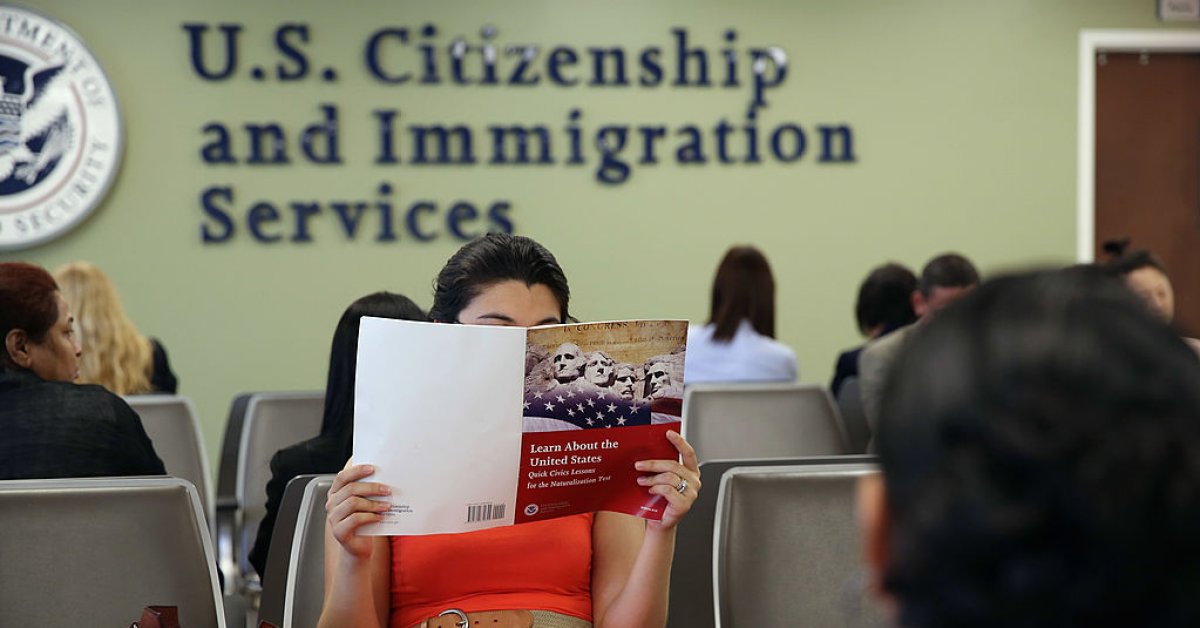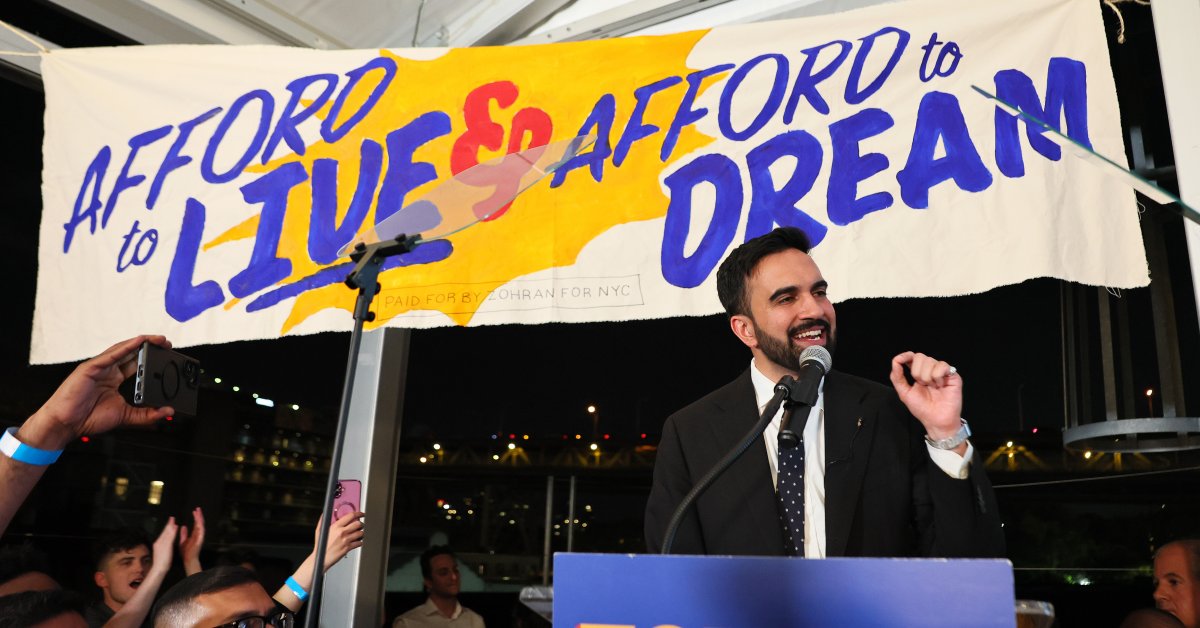The Trump Administration is introducing more stringent criteria for assessing “good moral character” in U.S. citizenship applications.
The policy, issued in a U.S. Citizenship and Immigration Services (USCIS) memo on Friday, directs the agency to conduct a more comprehensive and “holistic” assessment of applicants’ “good moral character,” including by accounting for applicants’ “positive attributes and not simply the absence of misconduct.”
“U.S. citizenship is the gold standard of citizenship—it should only be offered to the world’s best of the best,” USCIS chief spokesperson Matthew Tragesser said in a statement to news outlets. “USCIS is adding a new element to the naturalization process that ensures America’s newest citizens not only embrace America’s culture, history, and language but who also demonstrate Good Moral Character.”
It’s the latest move by the Trump Administration to restrict immigration to the U.S. by some, while expanding it to others. On his first day in office, President Donald Trump sought to effectively end birthright citizenship—which has resulted in ongoing litigation across the country. Trump has also attempted to bar international students from the nation’s top university, restrict Chinese international students, and increase scrutiny of student visa applicants’ social media accounts. The Administration has also deployed troops to help with immigration enforcement, detained and deported tens of thousands of people including some legally in the U.S., terminated Biden-era programs for asylum seekers, detained visitors to the U.S., revived a travel ban for dozens of nations, and raised visa fees for tourists and other travelers to the U.S.. At the same time, he’s introduced a “Trump Card” paid path to citizenship and accepted white South Africans as refugees while shutting out refugees more broadly.
This latest change might ring alarm bells for critics who have raised concerns about the Trump Administration appearing to inject more subjectivity and political bias into U.S. immigration. Stanford University’s student newspaper filed a lawsuit against the Administration last week alleging that the targeting for immigration action of non-citizens who have expressed pro-Palestinian views, including those lawfully in the U.S, is stifling free speech. The American Association of University Professors is also suing Secretary of State Marco Rubio over the Administration’s alleged “ideological deportation policy.”
“Anyone who has any position that is against what the American government says they should think, they’re immediately [labeled] ‘anti-American,’” David Rozas, an immigration attorney who represented Alireza Doroudi, an Iranian student who was detained for weeks and ultimately chose to self-deport, told TIME in May.
“They’re trying to increase the grounds for denial of U.S. citizenship by kind of torturing the definition of good moral character to encompass extremely harmless behavior,” Doug Rand, a former senior USCIS official who worked under the Biden Administration, told CBS.
Redefining “good moral character”
The “good moral character” has long been satisfied by the absence of certain criminal offenses or disqualifying conduct. These include “permanent bars” like murders, aggravated felonies, and genocide, as well as “conditional bars” like having multiple convictions of driving under the influence, for which an applicant must show that they have rehabilitated themselves.
Evaluating “good moral character” will now involve “more than a cursory mechanical review focused on the absence of wrongdoing,” according to the memo. Instead, an applicant must demonstrate that their character is “commensurate with the standards of average citizens of the community in which the alien resides.”
Officers are instructed to take a “holistic approach” and consider positive attributes such as: sustained community involvement and contributions in the U.S.; family caregiving and ties in the U.S.; educational attainment; stable and legal employment history and achievements; length of lawful residence in the U.S.; and compliance with tax obligations in the U.S.
USCIS officers are also instructed to consider disqualifying applicants on the basis of not just the permanent and conditional bars but also “Any other acts that are contrary to the average behavior of citizens in the jurisdiction where aliens reside,” even if those acts are “technically lawful.”
The memo also places more emphasis on applicants’ demonstration of rehabilitation if they have “engaged in wrongdoing,” such as by showing full payment of overdue taxes or compliance with court orders.
“In assessing conditional bars,” the memo reads, “officers have authority—and now explicit directive—to weigh all relevant evidence, both adverse and favorable, before granting or denying naturalization.”
Test impacts naturalization applicants
The test is typically taken by green card holders who seek naturalized American citizenship after residing in the U.S. for at least 3 or 5 years. In addition to showing “good moral character,” applicants must pass English and civics tests.
Between 600,000 and 1 million immigrants have been naturalized as citizens every year since 2015, according to USCIS. Around 25 million people in the U.S. are naturalized citizens, accounting for more than half of all foreign-born people in the U.S. in 2023.
Trump could also use the policy change to denaturalize U.S. citizens, which he has threatened to do to his former ally, tech billionaire Elon Musk, as well as New York City Democratic mayoral candidate Zohran Mamdani. A Justice Department memo in June instructed the department’s civil division to “prioritize and maximally pursue denaturalization proceedings in all cases permitted by law and supported by the evidence.” The law allows for naturalized citizens to be denaturalized if they are found to have violated their eligibility conditions, which include being of “good moral character.”








